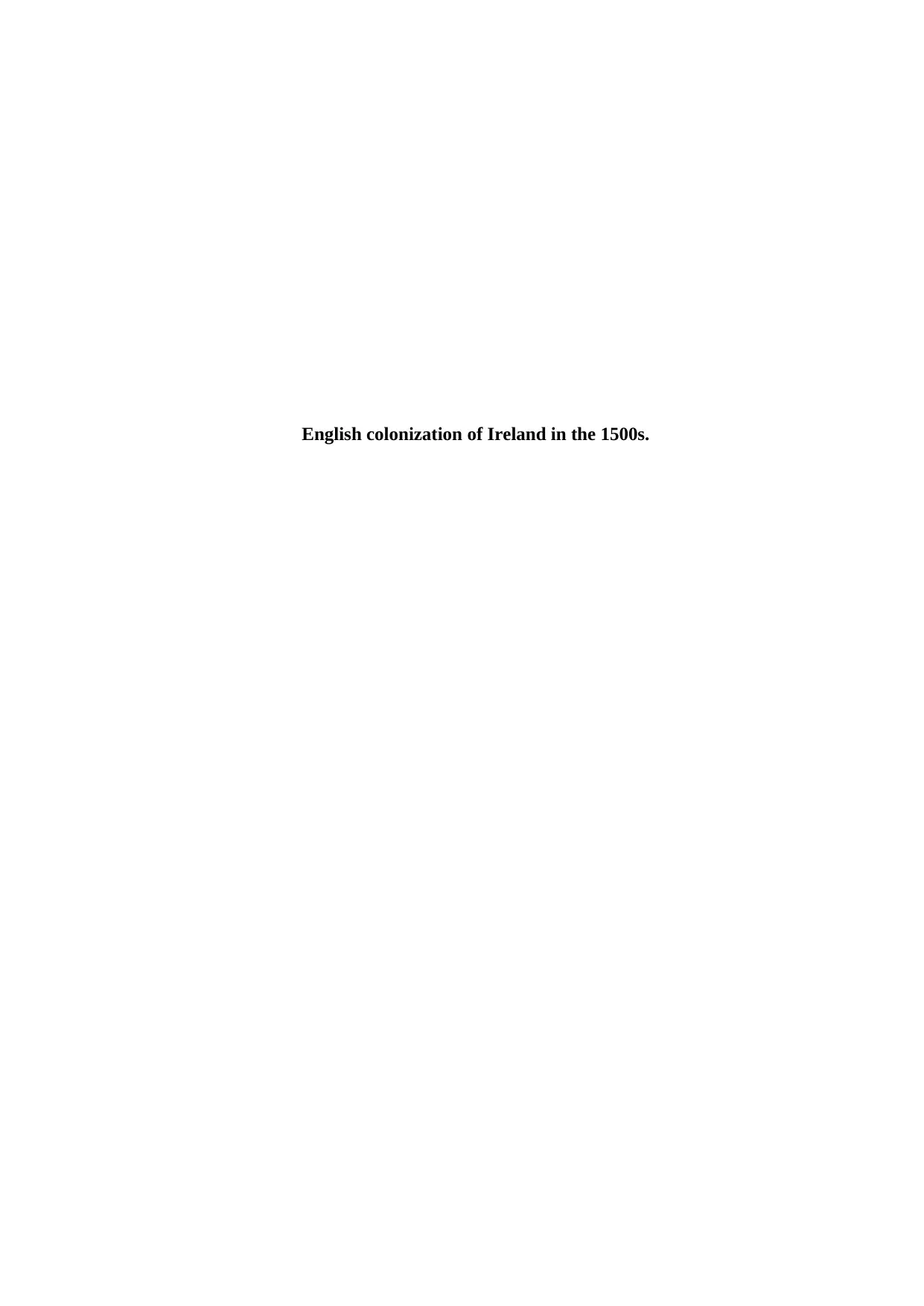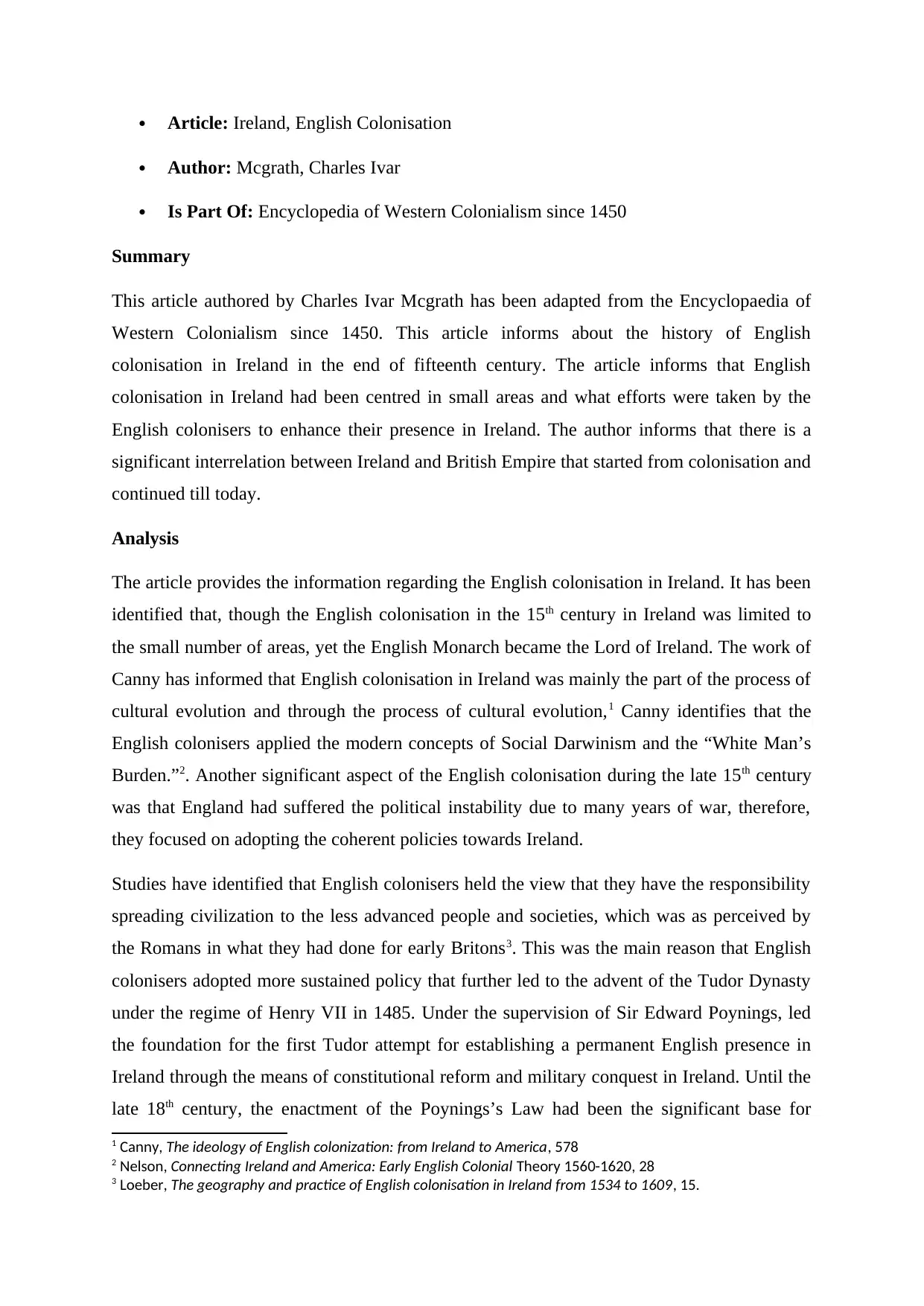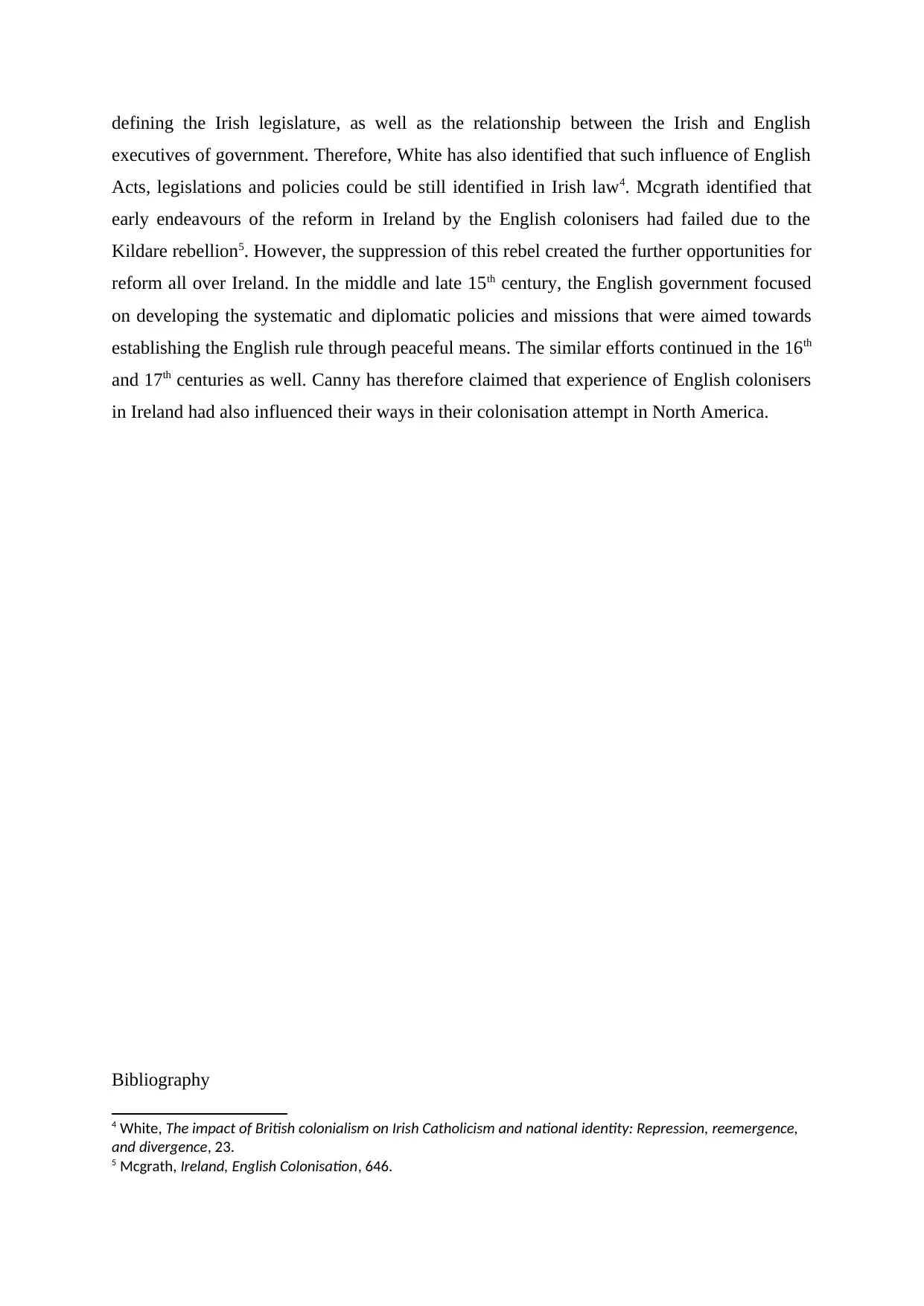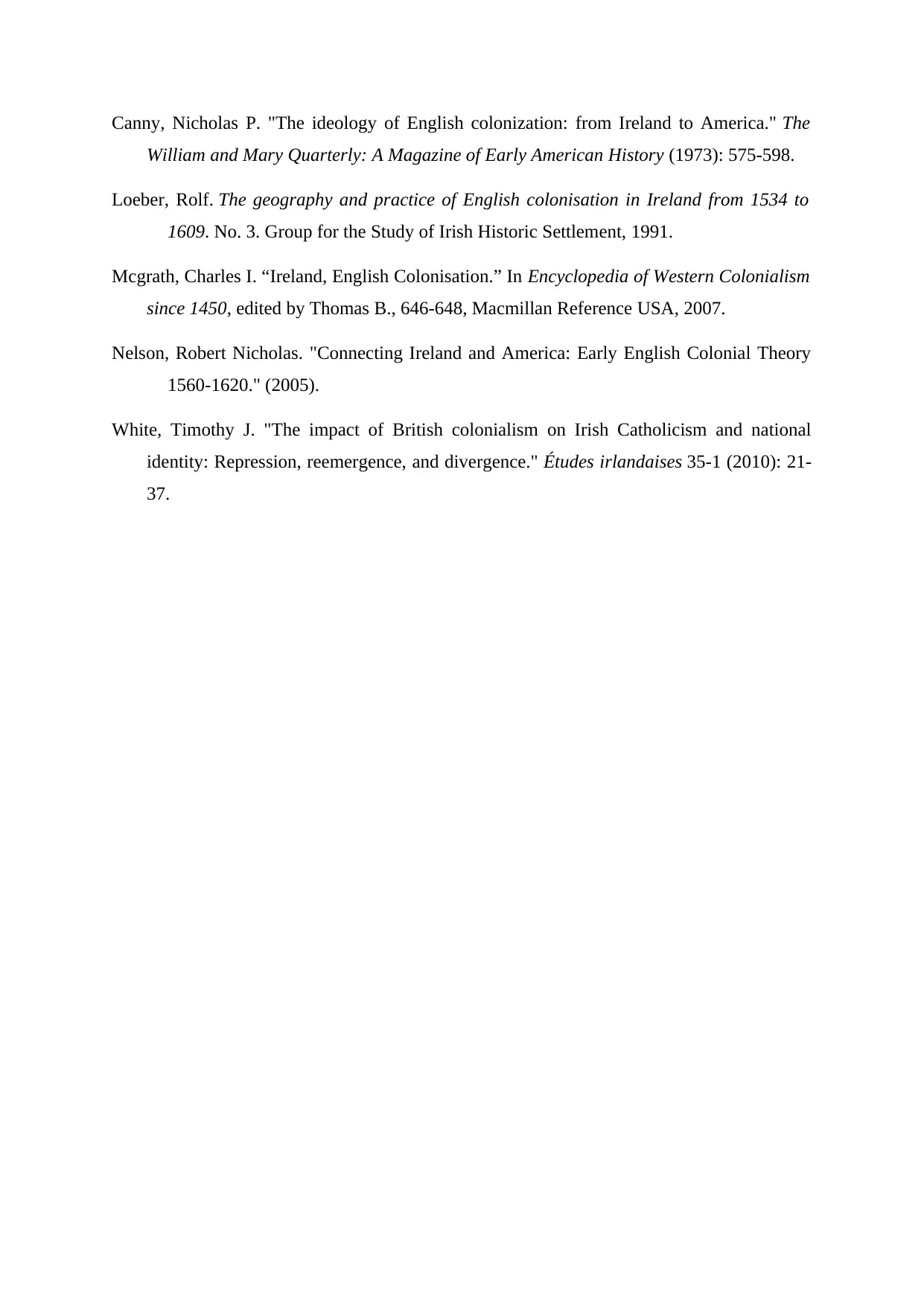A Detailed Review of McGrath's 'Ireland, English Colonisation' Article
VerifiedAdded on 2023/04/23
|4
|791
|190
Literature Review
AI Summary
This literature review delves into Charles Ivar McGrath's article, "Ireland, English Colonisation," which provides a historical overview of English colonization efforts in Ireland starting in the late fifteenth century. The review highlights that while initial English presence was limited, the English Monarch became the Lord of Ireland, marking the beginning of a significant interrelation between Ireland and the British Empire. The analysis incorporates Canny's perspective on cultural evolution and the application of Social Darwinism by English colonizers. It further explores the political instability in England that led to focused policies towards Ireland, the English colonizers' perception of civilizing less advanced societies, and the impact of the Tudor Dynasty, particularly the influence of Poynings’s Law on Irish legislature. The review also addresses the failure of early reforms due to the Kildare rebellion and the subsequent shift towards systematic and diplomatic policies, emphasizing the lasting influence of English acts and legislations on Irish law, and concluding with Canny's claim on how the colonization of Ireland influenced the ways in North America.
1 out of 4





![[object Object]](/_next/static/media/star-bottom.7253800d.svg)